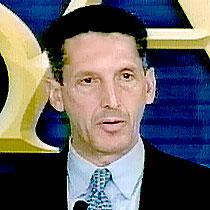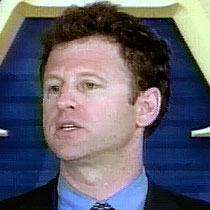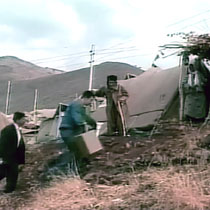2007年VOA标准英语-American Scholars Recommend Soft Partition of I(在线收听)
Washington
11 July 2007
Amid increasing calls in the U.S. Senate for American troops to withdraw from Iraq, two American scholars are recommending the partition of Iraq into three regions. Their plan includes a substantial reduction of U.S. troops from Iraq, but not a complete withdrawal. The scholars concede their proposal is "difficult and risky." But they argue that it may be the lesser of a range of evils and the only way to avoid all-out civil war in Iraq. VOA's Leta Hong Fincher has more.
 |
| Edward Joseph |
 |
| Michael O'Hanlon |
"The idea here is to give people a choice. That if they want to relocate to a safer place, the government will help them, it will protect them while they move, it will help them sell their home that they're leaving, make sure they have access to a new home, and get a job."
 |
| Many Iraqis are finding refuge from violence by seeking others of their ethnic background |
Current U.S. policy aims to build a strong central government in Iraq. But Edward Joseph of Johns Hopkins says that strategy may no longer make sense.
"The post-invasion record shows that the more power is concentrated in Baghdad, the more Shi'ites will have to dominate."
The scholars say their plan does not advocate the immediate withdrawal of U.S. troops. Rather, they estimate that for at least a year, U.S. forces would remain at their current levels of about 150,000. After the soft partition, O'Hanlon says that about 50,000 U.S. troops might be needed for several years. "This is in a sense a last-gasp effort to try to play a role in helping the Iraqis find a second-best alternative, but still one that's far preferable to genocide, which I think is the likely outcome -- or at least a possible outcome -- of American withdrawal."
Joseph and O'Hanlon are circulating their plan within the Bush administration, which plans to reassess its Iraq war policy in September.